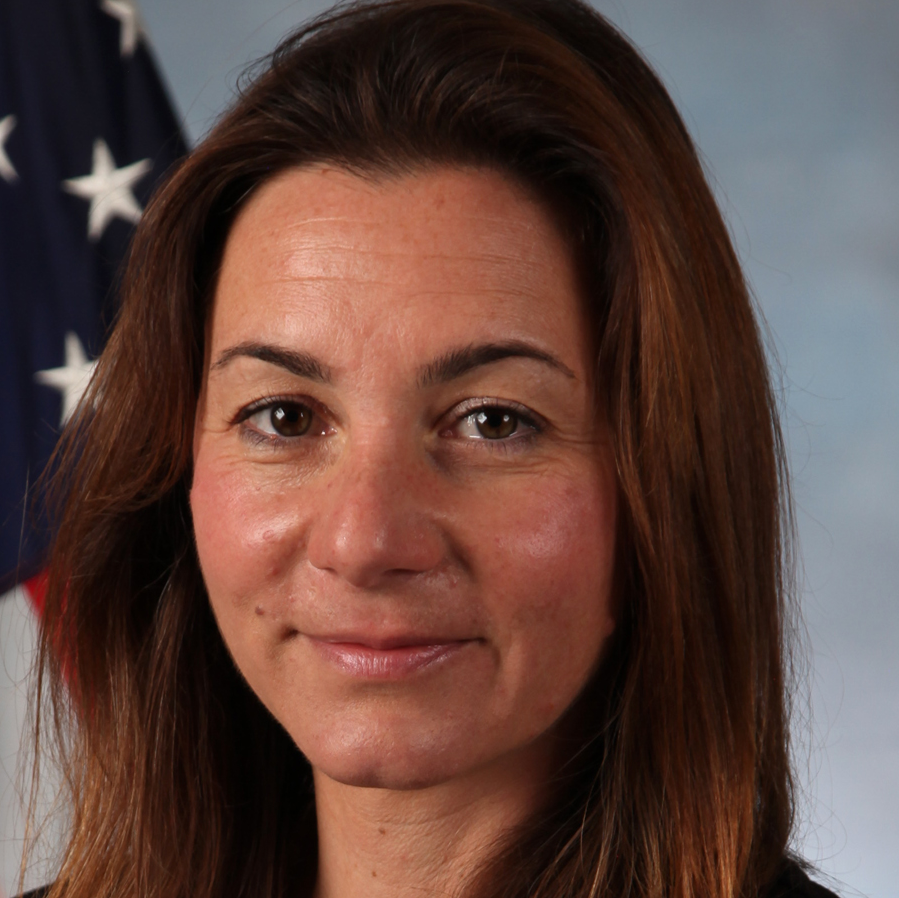 Ken Peterman
Ken Peterman
Ken Peterman is Founder & CEO, SpyGlass Group, an innovative thought-leading organization that has helped shape aerospace and defense strategic trajectories in the tactical communications,mobile networking, cybersecurity, and satellite sectors since 2012. As a passionate, creative and forward leaning leader in the global aerospace and defense market, Ken serves on a variety of boards and advisory groups where he has been honored with multiple awards, including:
– TEN BEST INNOVATIVE BUSINESS LEADERS – BUSINESSMAN OF THE YEAR – GAME CHANGER AWARDEE
INDUSTRY TECH OUTLOOK, 2020 – BATTLESPACE MAGAZINE – 2018 VANGUARD MAGAZINE, 2018
Previously, as President, Viasat Government Systems (2013-2021), Ken led a global defense business (>$1B) recognized as a market leader in assured high-capacity satellite communications, tactical networking and Link-16 datalinks, information assurance and cybersecurity, hybrid adaptive networking and blended air/ground situational awareness. Under Ken’s leadership, Viasat built a culture of passionately focusing on the warfighter’s mission and applying technical innovation to empower the warfighter in new and different ways, proactively creating technology-enabled operational capabilities in unprecedented ways some never thought possible. Ken led Viasat’s transformation to become the fastest organically growing US defense company for six consecutive years. Viasat grew to become a prime capabilities provider to the US DoD and allied forces, with a commitment to connecting the world’s toughest missions and ensuring that mission operators have the trusted information they need, when and where they need it most.
Previously, as President, ITT/Exelis Communications and Electronic Warfare Systems (2007-2013), Ken led a global defense and aerospace business >$1B with over 3,000 employees in 12 states plus the United Kingdom. Portfolios included tactical and satellite communications systems, information assurance and cybersecurity solutions, global positioning systems (GPS), electronic protection and counter IED systems, and integrated command, control, communications and computer (C4) systems for U.S. and allied forces in over 35 countries. (Note that ITT/Exelis spun out of ITT in 2011 and was then acquired by L3Harris in 2015.)
A distinguished leader in aerospace and defense, Ken has enjoyed successful executive leadership tenures at Viasat, ITT/Exelis, Rockwell Collins and Raytheon. Broadly respected as a thought leader and innovator among US and international senior leaders, he currently serves on a variety of boards and advisory groups. Ken received a Bachelor of Science in Electrical Engineering (high honors) from Tri-State University (now Trine) and completed executive programs at Stanford University Graduate School of Business and Pennsylvania State University.
 Chris Badgett
Chris Badgett
Mr. Chris Badgett is vice president of technology for Kratos Space. Prior to Kratos, Mr. Badgett served in the Air Force as a weapons engineer in the Air Force Research Lab. Chris has also worked in the Space Development and Test Wing as a program manager for a satellite system developed by Ball Aerospace. Mr. Badgett holds a BS in Electrical Engineering from University of Tennessee and an MS in Space Systems from the Air Force Institute of Technology.
 Debra Facktor
Debra Facktor
Debra Facktor is the Head of U.S. Space Systems for AIRBUS U.S. Space & Defense, Inc., reporting to the Chairman and CEO of Airbus U.S. She joined the company in March 2020 and is responsible for managing the two businesses within U.S. Space Systems: National Security Space and Space Exploration. She also represents Airbus on the board of Airbus OneWeb Satellites, a joint venture between Airbus and OneWeb operating a high-volume, high-speed satellite production facility in Florida, leveraging Airbus’ long standing heritage in satellite manufacturing.
Prior to joining Airbus U.S., Debra was Vice President and General Manager of Strategic Operations for Ball Aerospace, leading the company’s Washington DC operations, strategic development, and marketing and communications. Her extensive business experience includes serving as President and Owner of AirLaunch LLC, a small business that won funding from the Defense Advanced Research Projects Agency (DARPA) and as Vice President of Business Development and Strategic Planning for Kistler Aerospace Corporation, a company that was developing a privately-funded reusable launch vehicle for the telecommunications satellite and International Space Station commercial resupply markets. Earlier in her career, Debra was Chief of Moscow Operations for ANSER’s Center for International Aerospace Cooperation.
Debra is actively engaged as a board member, advisor and mentor in the aerospace community, with organizations such as the Intelligence and National Security Association (INSA), American Institute of Aeronautics and Astronautics (AIAA), Future Space Leaders Foundation, Brooke Owens Fellowship Program, Women in Aerospace and the International Women’s Forum. She serves on the Industrial Advisory Board of the University of Michigan aerospace engineering department and as an adjunct faculty member of the Johns Hopkins University systems engineering department. She is a fellow of AIAA and the American Astronautical Society (AAS) and an academician of the International Academy of Astronautics (IAA).
Debra received her bachelor’s and master’s degrees in aerospace engineering from the University of Michigan, and is an alumna of the International Space University summer session program in Strasbourg, France.
 Karl Fuchs
Karl Fuchs
Karl Fuchs joined iDirect Government in 2004 as the Director of Sales Engineering, just as the satellite-based IP communications company was expanding its very small aperture satellite (VSAT) market presence into the federal government and international Internet Protocol (IP) networking world. He now works as the Sr. Vice President of Technology.
With more than 25 years of experience in technology and with the federal government, Fuchs leads iDirect Government’s team of federal sales engineers, hardware engineers, software engineers, and serves as chief architect for new product integration.
Prior to joining iDirect Government, Fuchs was Director of Systems Engineering at Nortel Networks, where he oversaw the Verizon account team of systems engineers, leading the design of IP, Frame Relay, Asynchronous Transfer Mode (ATM) and dense wavelength division multiplexing (DWDM) networks. Before joining Nortel, he designed IP and ATM networks for Sprint and the federal government.
Active in the satellite industry for more than 20 years, Fuchs has contributed editorial to numerous publications including Federal Computer Week, Institute for Defense and Government Advancement, COTS Journal, Military Information Technology, Via Satellite, MILSATCOM and Satellite Evolution Global. In addition, he has been a featured speaker at leading industry events including the DoD SATCOM User Workshop, ISCe, IBC, Pacific Telecommunications Council and Emergency Management Talks.
Fuchs holds a Bachelor of Science degree in electrical engineering from George Mason University, Fairfax, Va. and an MBA from Averett University, Danville, Va.
 Rick Lober
Rick Lober
Rick Lober is the Vice President and General Manager of the Defense and Intelligence Systems Division (DISD) at Hughes Network Systems, LLC. In this role, he is responsible for applying the company’s broad range of SATCOM technologies and services to the worldwide defense marketplace and intelligence community. Applications cover satellite communications on the move for both ground-based an airborne platforms along with numerous classified development programs. He has over 30 years experience with both COTS-based and full MIL communications and intelligence products, systems and major programs starting as a design engineer and progressing to a P&L executive.
Mr. Lober previously worked at Cubic Corporation as Sr. VP/GM of the Communications Business Unit. In this role, he led the company’s development of the Tactical Common Data Link (TCDL) for application to both manned and unmanned military ISR platforms.
Mr. Lober worked at Watkins-Johnson Company before joining Cubic. In this role, he started as a design engineer for the company’s large catalog of signal intelligence equipment and progressed to a Department P&L lead for SIGINT equipment and systems. Mr. Lober led the program to develop the world’s first high volume digital HF receiver and also led efforts to move the company into commercial telecommunications markets.
Mr. Lober received his BSEE and MSEE degrees from the University of Illinois, Urbana, and is a member of the IEEE, AFCEA, AUSA, AUVSI and the Society of Satellite Professionals. He has published numerous papers and presentations on digital receiver design, high-speed data links, and satellite communications. Mr. Lober holds a patent in wireless communications and he and his family live in Annapolis, MD.
 Tim Lynch
Tim Lynch
Tim Lynch is executive director of the Multi-Domain Architecture Group within the Space and Airborne Systems segment of L3Harris Technologies. Space and Airborne Systems covers an extensive portfolio of solutions
in intelligence, surveillance, small satellites, electronic warfare, avionics (including carriage and release systems), wireless solutions and C4I systems. Prior to his current position, Lynch was a chief mission architect of L3Harris. In this role, he was responsible for working with customers and program teams to develop new solutions and mission architectures to support all major areas within the organization, including smallsats, radio frequency and electro-optical payloads, and end-to-end mission solutions.
Previously, Lynch was the senior director of advanced programs with the Intelligence, Surveillance and Reconnaissance business unit at Harris Corporation (prior to the company’s merger with L3 Technologies in 2019).
Lynch joined Harris in 2000, earlier assignments included general manager of the company’s Mission Solutions. He also led two enterprises – Satellite Solutions and Advanced Technologies. These enterprises provided commercially hosted payloads, smallsat end-to-end solutions, and state-of-the-art processing systems for the Department of Defense, Intelligence Community and commercial market.
Lynch began his career as an electrical engineer and has held positions of increasing responsibility in the areas of engineering, business development, program management and mission architecture.
Lynch holds bachelor’s and master’s degrees in electrical engineering from Florida State University. He is a graduate of the Wharton executive leadership program.
He is a member of the Phi Kappa Psi Fraternity Florida Alpha Chapter, the Institute of Electrical and Electronics Engineers, the Armed Forces Communications and Electronics Association, and several other intelligence and defense organizations.
L3Harris Technologies is an agile global aerospace and defense technology innovator, delivering end-to-end solutions that meet customers’ mission-critical needs. The company provides advanced defense and commercial technologies across air, land, sea, space and cyber domains. L3Harris has approximately $18 billion in annual revenue and 48,000 employees, with customers in more than 100 countries.
 Bianca Prumo
Bianca Prumo